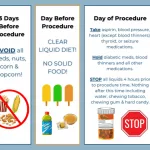If you have diabetes, consuming alcohol can be acceptable if you pick appropriate beverages and monitor how they influence your blood glucose. Below are 10 alcoholic options that are relatively low in carbohydrates.

Health organizations typically describe moderate drinking as up to 1 drink per day for women and up to 2 drinks per day for men.
One standard drink generally equals:
- 12 fluid ounces (fl oz) — about 360 milliliters (mL) — of regular beer (around 5% alcohol)
- 5 fl oz (150 mL) of wine (about 12% alcohol)
- 1.5 fl oz (45 mL) of 80‑proof distilled spirits (40% alcohol)
Some diabetes drugs, such as sulfonylureas and thiazolidinediones, raise the chance of hypoglycemia (low blood sugar). Heavy alcohol intake can further increase that risk.
If you take medication, discuss with your clinician whether and how you can safely include alcohol in your routine.
1–4. Beer
Light beers typically have fewer calories and carbs than regular varieties. Below are some widely available low‑carb beer picks.
1. Miller Lite
Miller Lite is an American light lager brewed with barley malt and corn syrup, among other ingredients.
It contains only 3.2 grams (g) of carbohydrates per 12‑oz (360‑mL) can or bottle, compared with about 12 g in regular Miller offerings of the same size.
2. Coors Light
Coors Light is another American light lager and contains roughly 5 g of carbs per 12‑oz (360‑mL) bottle.
By comparison, standard choices like Coors Banquet contain nearly 12 g of carbs per bottle.
3. Bud Light
Bud Light is another low‑carb beer option, offering about 4.6 g of carbohydrates per 12‑oz (360‑mL) serving.
That’s roughly half the carbs of a regular Budweiser of the same serving size.
4. Busch
Many Busch beers are reasonable choices for people with diabetes because most of the brand’s lineup is relatively low in carbs, even the beers not specifically marketed as low‑carb.
For example, a 12‑oz (360‑mL) pour of regular Busch has about 7 g of carbs, while the same serving of Busch Ice and Busch Light provide approximately 4.2 g and 3.2 g, respectively.
5–6. Wine
Below are two wine categories that are relatively low in carbohydrates.
5. Red wine
A 2023 review suggests red wine may offer benefits for people with diabetes, including reduced oxidative stress, inflammation, and cardiovascular risk.
Research also points to flavonoids in red wine as possibly lowering the chance of diabetic retinopathy, a complication that harms blood vessels in the eye.
Additionally, a standard 5‑oz (150‑mL) serving of red wine contains only a small amount of carbs.
6. White wine
White wine generally has a carbohydrate content similar to red wine.
For instance, a 5‑oz (150‑mL) glass of white wine supplies a comparable small amount of carbs.
Among whites, certain champagne styles may be suitable choices — dry and Brut versions are low in sugar.
For example, a 5‑oz (150‑mL) serving of extra‑dry champagne contains about 1.8 to 2.5 g of sugar, while Brut champagne in the same pour has under 1.8 g of sugar.
7. Distilled spirits
Hard liquors or distilled spirits generally contain little to no carbohydrates. Examples include:
7. Gin, rum, vodka, or whiskey
These spirits have essentially zero carbs per 1.5‑oz (45‑mL) serving.
Keep in mind the carbohydrate content of your drink will change depending on mixers.
Avoid combining spirits with sugary juices or regular soda, since those mixers can cause a rapid rise and then drop in blood sugar.
8–10. Low‑carb cocktails
If you want a mixed drink, choose low‑sugar mixers. Here are some low‑carb cocktail choices.
8. Martini
A martini is made by combining gin or vodka with dry vermouth (commonly a 2:1 ratio) and garnishing with an olive or lemon peel.
Because it lacks fruit juices or sugary mixers, a 4‑oz (120‑mL) martini contains very few carbs, making it a reasonable pick when consumed in moderation.
9. Vodka soda
A vodka soda is simply vodka mixed with club soda. Using club soda or seltzer keeps the drink’s carb count at essentially zero.
If you prefer flavor, choose flavored sparkling water rather than flavored vodka, which may include sugar‑based syrups.
10. Bloody Mary
A Bloody Mary is prepared with vodka and tomato juice plus various sauces and spices, often served with a celery stalk.
A Bloody Mary has a modest carbohydrate content.
Tomato juice provides lycopene, an antioxidant pigment that has been associated with potential protective effects for people with diabetes.
If you make a Bloody Mary at home, pick tomato juice without added salt, since a high sodium intake can contribute to elevated blood pressure.
Drinks to avoid
Although some cocktails can be diabetes‑friendly, many classic mixed drinks are loaded with added sugars. Avoid these unless you prepare them yourself with low‑sugar ingredients.
For instance, some popular sweet cocktails can contain 35 to 44 g of carbs per 7‑oz (225‑mL) serving.
Dessert wines — such as vermouth, port, and sherry — are also high in sugar and typically served after meals.
The same applies to cream liqueurs like Bailey’s Irish Cream and Kahlúa; they deliver a notable carb load — much of it from sugar — in a 2‑oz (60‑g) serving.
The takeaway
The best alcohol options for people with diabetes are those low in sugar or carbohydrates. Examples include light beers, red and white wines, distilled spirits, and low‑carb cocktails prepared without sugary juices or syrups.

























Leave a Reply
You must be logged in to post a comment.